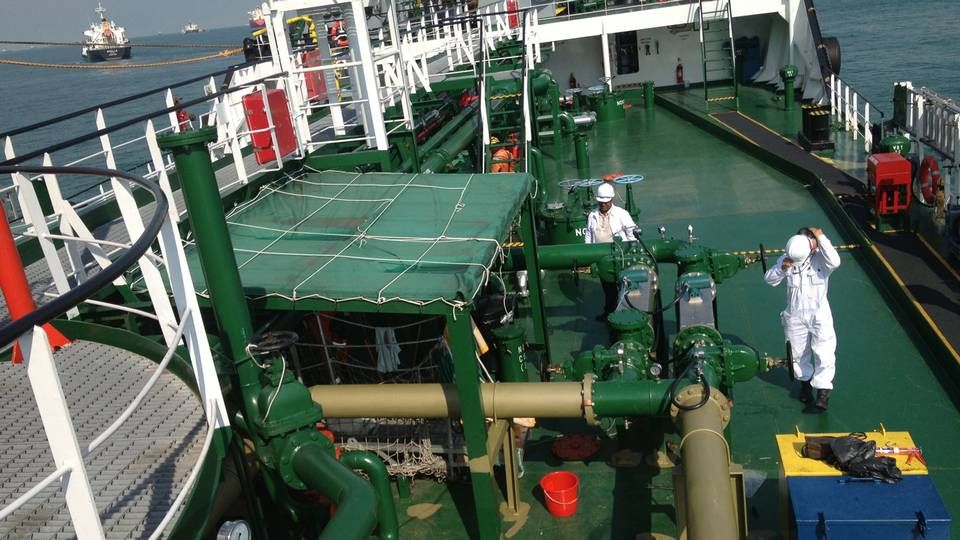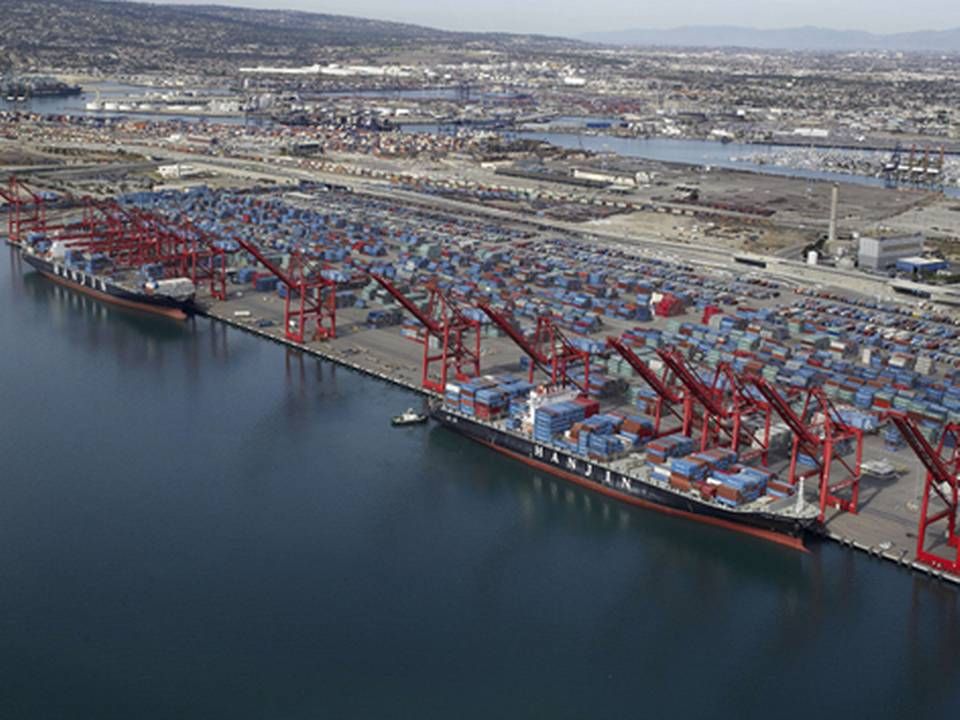Insatech: Carriers pay high price for bunker fraud

Bunker quality is not the only problem faced by shipowners, as the future chairman of bunker association IBIA, Henrik Maul, told ShippingWatch recently. The global bunker market is permeated by oil traders and physical operators defrauding the carriers when ships are bunkering oil, says Carsten Hounsgaard, project sales manager at supplier Insatech, whose products include systems for controlling bunker transfers.
He says the problem is the lack of international rules for regulating the technical aspects of the oil trade:
"If you know just a little bit about the technical aspects it becomes easy to make a lot of money by cheating and defrauding, and the lack of rules encourages this development. That's the biggest problem in the bunker trade. Buyers are cheated on volumes," he tells ShippingWatch, while stressing that there are of course also honest oil traders in the business.
Bunker is the biggest expense
Oil prices have increased significantly over the last 20 years, which means that bunker currently accounts for 70-80 percent of a ship's total expenses. And a lot money is involved when a ship bunkers fuel. One ton of heavy fuel oil costs between USD 600-700 and, depending on the size, a ship may need around 1-4,000 tons. This corresponds to a million dollar trade between the carrier and the bunker trader. But where fuel trade in all other international businesses are subject to rules and third-party controls, there are no such rules or requirements for shipping. The law of the jungle applies here, as Carsten Hounsgaard, who has worked with bunker for five years, says:
"There's a lot of money to be made here, which attracts some unfortunate characters," he says, adding:
"It happens a lot, at least in every other bunkering. If you ask most carriers, they'll tell you they expect to lose between four to five percent a year. If you convert that, we're looking at millions of dollars. It's a growing problem for people who depend of smaller margins. Carriers simply can't afford to hand over 1-3 percent of their expenses."

Cheating with volume
The most common way of cheating concerns the volumes, and thus a huge amount of oil. Like any other liquid, oil is affected by temperature, and if the temperature is low the oil takes up more space. In this way, the buyer believes he has received more oil than is actually the case, thus paying a higher price. Another trick used in the industry is called the Cappuccino Effect, where the oil seller pumps air into the oil during bunkering, thus increasing the volume. When the ship departs thinking the tank is full, the oil volume slowly decreases as the air disappears. This typically takes 18-24 hours.
Back in June, Insatech's system (photo) revealed that a carrier had been cheated out of 53.3 tons of oil, corresponding to USD 31,980, during a bunkering in which the barge had been pumping air into the oil. But since the system measures the mass and not the volume, it was able to detect the fraud, explains Carsten Hounsgaard, calling the trick "a classic."
New IBIA chairman: Way too much poor bunker
He generally believes that there are several factors at play in regards to this development. Part of it involves the lack of rules, but also the fact that it's currently difficult to make money through "honest" bunker trade.
"I generally think the market needs to wake up. Shipowners have contributed to pushing the oil prices down to unrealistic levels with their oil traders and bonus systems," says Carsten Hounsgaard.
Singapore initiatives
However, there are signs emerging that some might be tiring of this development. In order to get rid of the large-scale defrauding, the maritime port authority (MPA) in one of the world's largest oil hubs, Singapore, is trying to introduce rules for oil supplies. The plan is for the trade to go through flowmeters by 2014, to measure oil masses, thus putting an end to the current scale of cheating.
"In order to get a license to trade out there, they're going to put up this requirement going forward. It's a great initiative, but if we want to be rid of all the problems we have to go through the IMO and the major bunker hubs, such as Houston and Rotterdam," says Carsten Hounsgaard.
"There are simple ways of dealing with the worst issues. It will never be great, but we could get rid of the worst parts by introducing some basic rules for trading oil, as defined by the MID directive. I hope the MPA succeeds with this, as the biggest hub in the world is guaranteed to have a spill-over effect on the rest of the market."
New bunker chairman: 2015 sulphur rules are a ticking bomb
Related articles
Russians dumping bunker prices
For subscribers




















